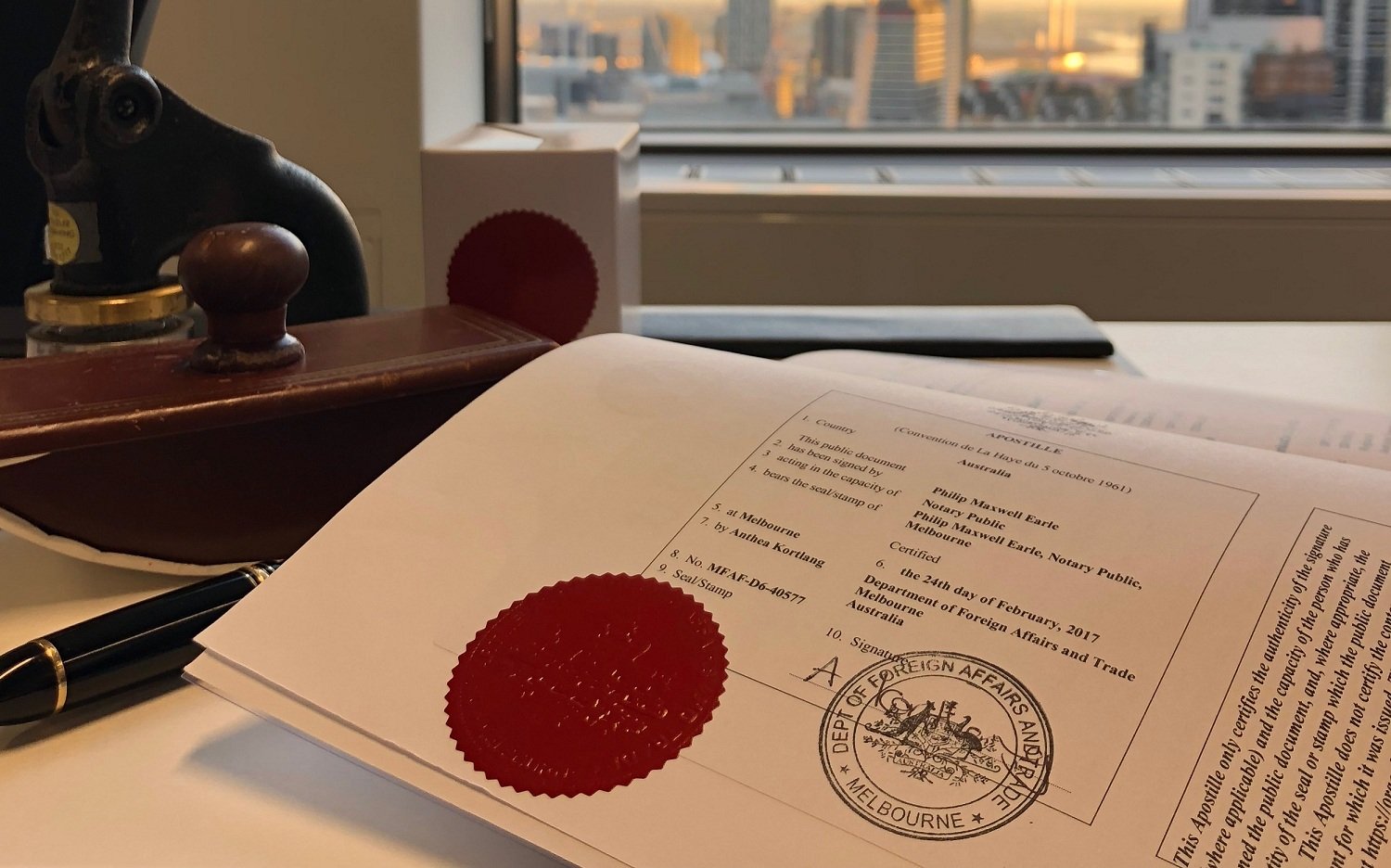Exploring the Factors Behind the Mandatory Need of Apostille Certification for Legal Papers
In the world of legal documents, the compulsory need of apostille certification has ended up being an important aspect that dramatically affects the legitimacy and acknowledgment of legal documents on a global scale. Understanding the rationale behind this necessity entails diving into the intricate internet of legal complexities, historic precedents, and worldwide arrangements that emphasize the value of apostille certification in today's interconnected globe. By checking out the underlying factors behind this widespread need, a clearer image emerges of why this relatively administrative procedure holds such immense importance for governments, organizations, and people alike.
Historical Evolution of Apostille Certification
Exactly how did the concept of apostille qualification develop over time to become an important part of international record validation? The need for a streamlined technique of confirming documents for usage across borders came to be evident as worldwide trade and travel raised.
Initially adopted by a couple of European countries, the Apostille Convention slowly got international acceptance because of its efficiency and efficiency in confirming the legitimacy of main documents. For many years, the convention's reach increased as even more countries signed up with, acknowledging the apostille as a generally accepted kind of document verification. Today, apostille certification has actually become a typical requirement for validating legal documents in worldwide transactions, making sure smooth communication and legal process between countries.
Simplifying International File Legalisation
The streamlining of international document legalization treatments has actually dramatically improved performance in cross-border transactions. Streamlining the procedure of legislating documents for worldwide usage has become critical in promoting swift and seamless deals in between nations. Among the crucial devices that have added to this simplification is the adoption of the Apostille Convention, which offers a standard technique for verifying the authenticity of records across participating nations.
By sticking to the Apostille needs, countries concur to identify each other's public files as legitimate without the requirement for further legalisation. This removes the extensive and frequently difficult process of numerous verifications by various authorities, saving time and sources for individuals and services participated in global tasks.

Guaranteeing Paper Authenticity and Credibility
To make certain the authenticity and legitimacy of lawful files in international deals, stringent confirmation procedures are essential. By calling for apostille accreditation for lawful papers, authorities aim to authenticate the beginning of papers and confirm the trademarks of people involved.
Furthermore, verifying the credibility of lawful records with apostille certification boosts depend on and confidence amongst parties participating in international purchases. It offers guarantee that the papers provided are real and legitimately binding, consequently decreasing the risks related to illegal activities. Additionally, making certain document legitimacy with apostille certification streamlines the legalisation process, you can try here making it much more trustworthy and efficient for companies and individuals carrying out service throughout boundaries. Eventually, by upholding stringent verification criteria, apostille certification contributes to an extra transparent and protected worldwide lawful framework.

Assisting In Cross-Border Legal Acknowledgment
In the realm of international purchases, the apostille qualification not just ensures the credibility and legitimacy of lawful files however additionally plays a crucial duty in facilitating cross-border lawful recognition (Houston Apostille). When legal documents bear an apostille certification, they are easily accepted by foreign authorities without the requirement for more confirmation. This structured procedure speeds up the recognition of papers in different countries, promoting efficiency and minimizing bureaucratic difficulties in legal issues that go beyond national limits
Helping with cross-border lawful acknowledgment with apostille accreditation cultivates count on and confidence in the authenticity of files exchanged in between nations. This recognition is particularly crucial in scenarios such as global business deals, adoption procedures, or legal proceedings entailing celebrations from various jurisdictions. By sticking to the requirements stated by the Apostille Convention, nations consent to honor the apostille seals fastened to papers from other member countries, hence streamlining the procedure of lawful acknowledgment across borders. Ultimately, the apostille qualification serves as a basic houston apostille device in advertising smooth international legal cooperation and making sure the smooth operation of cross-border transactions.
Conformity With International Treaty Standards
Conformity with international treaty criteria is crucial for making sure the uniform application of legal regulations across participating nations. The Apostille Convention, developed in 1961, details the demands for the approval of public records among participant nations. By adhering to the standards set forth in this treaty, nations commit to identifying the credibility of each other's certification without the need for further verification - Houston Apostille. This shared approval simplifies the process of cross-border file recognition, promoting performance and lowering governmental difficulties.
The Apostille certification, as mandated by the treaty, acts as a warranty of authenticity for records such as birth certifications, marital relationship licenses, court judgments, and notarized acts. This standardized technique aids prevent fraud and ensures that lawful papers stemming from one member country are easily approved in one more. By conforming with global treaty criteria, nations demonstrate their commitment to supporting the concepts of transparency, count on, and cooperation in legal issues on a worldwide range.
Conclusion

In the world of legal documents, the mandatory demand of apostille certification has ended up being a vital facet that significantly influences the credibility and recognition of legal documents on a worldwide range. Today, apostille accreditation has ended up being a basic requirement for validating lawful documents in worldwide purchases, ensuring smooth interaction and legal process between countries.
Moreover, confirming the credibility of legal site here documents via apostille accreditation enhances depend on and confidence among parties engaging in international deals.In the world of international transactions, the apostille qualification not just makes certain the credibility and credibility of legal documents but likewise plays a pivotal function in promoting cross-border legal recognition. By sticking to the requirements set forth by the Apostille Convention, countries agree to recognize the apostille seals attached to files from other member countries, therefore streamlining the process of lawful acknowledgment across boundaries.